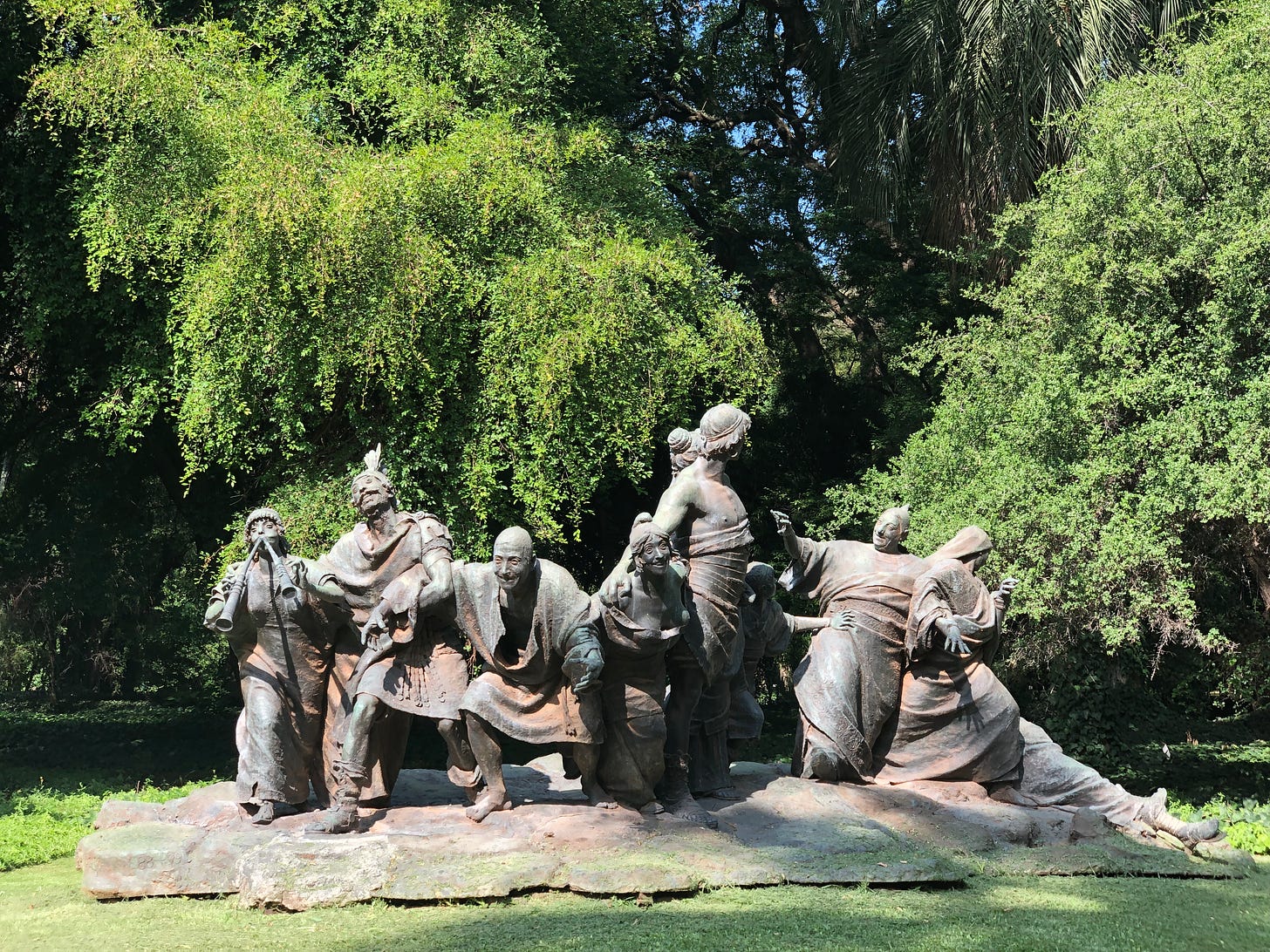Dear Classical Wisdom Reader,
Io Saturnalia!
Yes, it’s that time of year again when we ancient history lovers get an early start on the celebrations... with none other than the Roman festival of Saturnalia, described “the best of days.”
Originally celebrated on December 17th, Saturnalia was so popular that it was eventually extended over the week... so you still have time to pass on your Saturnalia salutations if you by chance forgot yesterday.
But what was this party where the, “whole mob has let itself go in pleasures,” as Seneca complained?
Like most ancient traditions, it started with a sacrifice. Saturnalia began aptly at the Temple of Saturn in the Roman Forum, and was followed by a public banquet, private gift giving of gags, and ended with an all out carnival.
Auspiciously meant to worship the God Saturn (or Greek Kronus), it essentially grew into an event that seems to have captured some of the best and worst of human qualities. It was a time when people rejoiced, visited friends, gave gag gifts, lit candles and sang in the streets – naked. Slaves were treated like equals, conspirators were prone to assassinations, and the Lord of Misrule told everyone what to do...
While it might seem like a rowdy event (and it was), it was considered a very important festival. Of course, holidays - and celebrations in general - are essential to society. Not only do they act as a cohesive agent for the community, a time of sharing and gift giving to cement relationships, they also provide fantastic insights into the values and morals of those celebrating.
So, in honor of the ‘season’, today’s issue is all about celebrations, festivities, shindigs and outright debauchery in the ancient world in our Classical Wisdom Litterae Magazine, below.
Learn more about the intense revelries of the Saturnalia (so you can replicate the fun in a historically accurate fashion) as well as the Eleusinian Mystery Festivals and the art of the celebratory libation.
And to get you started, we have a fantastic piece on Ovid’s Fasti, the extremely unique and yet surprising riveting holiday poem, below.
This December edition of Classical Wisdom Litterae will definitely get you in the mood for your next holiday party... or at least for a good drink!
All the best,
Anya Leonard
Founder and Director
Classical Wisdom
P.S. If you are still on the scout for a good Christmas gift, why not give the gift of wisdom?
Take advantage of our Gift Subscriptions so your friends and family can access our full in-depth articles, Ebook Library, Podcast with Professors as well as our Classical Wisdom Litterae magazine archive… and discover the Classics together:
Ovid’s Fasti
By Nicole Saldarriaga
“Here shalt thou read afresh of holy rites unearthed from annals old, and learn how every day has earned its own peculiar mark” - Fasti
“It’s that time of year again…”
What a commonplace expression these days. Lately it feels as if everyone from your brother to the friendly announcer on that radio advertisement to the cashier at the supermarket starts parroting the phrase by midNovember — typically with a mixture of joy and dread.
Of course, they’re talking about the holiday season — the time of pretty, twinkly lights, hot chocolate, butter cookies, and a healthy dash of gift-giving performance anxiety, plus plenty of mall traffic (hence the dread).
Don’t worry, I’m not going to get into the whole spiel about commercialization and the “real meaning of the holidays,” but we are talking about celebrations this month, and before I get into the awesome piece of holiday-related literature we’ll be discussing today, I wanted to remind everyone: Holidays and other big celebrations are actually so integral and important to the make-up of any society that it makes them (to put it plainly) really cool.
This is all just to explain why I’m so excited to spotlight a little-known piece of literature called the Fasti (sometimes called “The Book of Days”), written by the big man himself — Ovid.
Keep reading with a 7-day free trial
Subscribe to Classical Wisdom to keep reading this post and get 7 days of free access to the full post archives.



